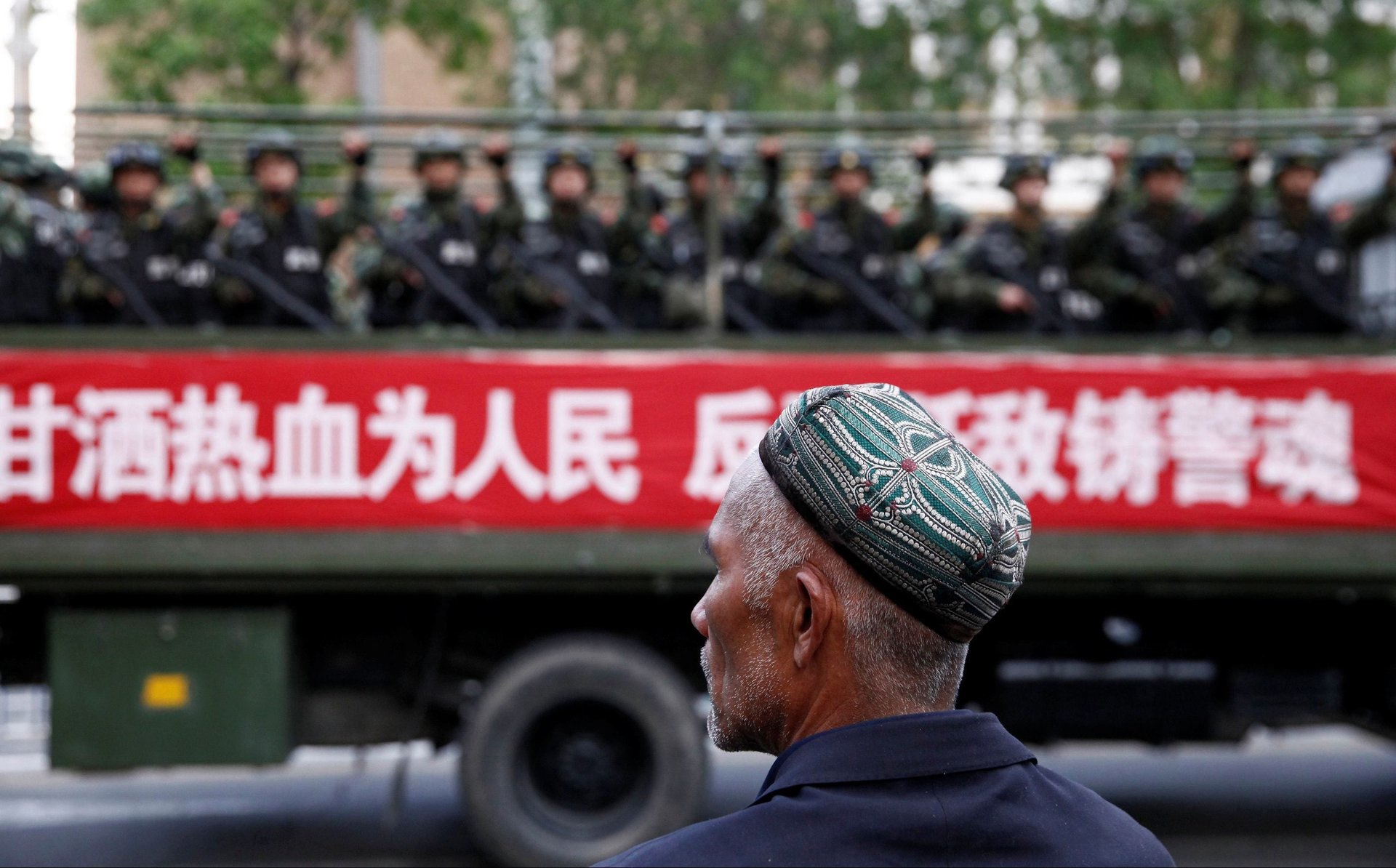Basketball and happy kids: The photos of Xinjiang’s detention camps Beijing wants the world to see
A new, full-throated defense by China of its mass incarceration of Uyghur Muslims in Xinjiang is in full swing.


A new, full-throated defense by China of its mass incarceration of Uyghur Muslims in Xinjiang is in full swing.
In the past two weeks, Beijing has changed its tune from denying the existence of detention camps—where as many as a million Uyghurs could be held—to presenting them as fun, educational, even voluntary places where people are merely learning new skills to improve their lives.
Beijing’s public relations offensive is a sign that it wants to wrest back control of the narrative over Xinjiang amid growing international pressure on the government to explain what is happening to the Uyghur minority there. Earlier this month, for example, members of the US Congress including Marco Rubio said they would nominate a prominent Uyghur intellectual Ilham Tohti, who has been in prison since 2014, for the Nobel Peace Prize. And in August reports criticizing China’s treatment of Uyghurs came up for discussion before a UN rights panel.
China’s defense of such camps centers around the argument that they are necessary to prevent the spread of religious extremism in the far western region, which in the past has seen violent incidents break out between the Uyghur population and the Han Chinese. China’s majority group has been migrating to Xinjiang in large numbers over decades, such that the region’s capital Urumqi is now a Han-dominated city.
In a recent interview with state media, Shohrat Zakir, chairman of the government of the Xinjiang Uyghur Autonomous Region, said the camps were part of a “vocational education and training program” providing “de-extremization education” for free. The program also involves comprehensive learning of Mandarin, Chinese history, and the Chinese constitution. Detainees are provided training in a wide variety of vocational courses including garment making, mobile-phone assembly, and e-commerce, while leisure activities range from ball games to film screenings.
“Many trainees have said that they were previously affected by extremist thought and had never participated in such kinds of art and sports activities, and now they have realized that life can be so colorful,” said Zakir.
And as analysts and journalists have spent months trying to uncover the existence of such camps either through covert reporting (paywall) or combing through satellite imagery, Chinese state television finally provided the public with its own version of what really goes on inside these camps. A news program on broadcaster CCTV which aired Oct. 16 showed footage from one such training center in Hotan in southwestern Xinjiang, featuring interviews with Uyghurs extolling their experiences inside the center, including one woman who said that “the Communist Party and the government discovered me, and saved me.”
The CCTV program also showed people making nan bread, a staple of Uyghur cuisine. Adrian Zenz, a researcher at the European School of Culture and Theology in Germany who focuses on Xinjiang, questioned why there was a need for Uyghurs to learn how to make nan in these facilities. He said that the entire program sought to portray Uyghurs as a backward people whose very way of life made them “naturally prone to became dangerous for society.”
Among the most vocal proponents of these centers is Hu Xijin, the editor-in-chief of nationalistic state tabloid Global Times. He and other Global Times journalists visited one of these facilities in Yutian in Hotan prefecture, and said that what he saw stood counter to claims by Western media that Uyghurs were being taken away secretly to these camps.
Analysts researching security in Xinjiang, however, say that satellite imagery shows that such facilities—including the one referred to by Hu—are much more secure than his photos show.
Beijing’s admission of the existence of these camps also comes alongside an intensifying crackdown on religious practices in Xinjiang, including an anti-halal campaign and limitations on clothing and beard length.
One “trainee” told the Global Times that he was born into a religious family, but that he now recognized “distorted doctrines spread by religious extremists” are against Chinese law. “The program was good timing for me, since we learned that extremism is the root of terrorism and violence and if we go further astray, we would become terrorists,” he said.